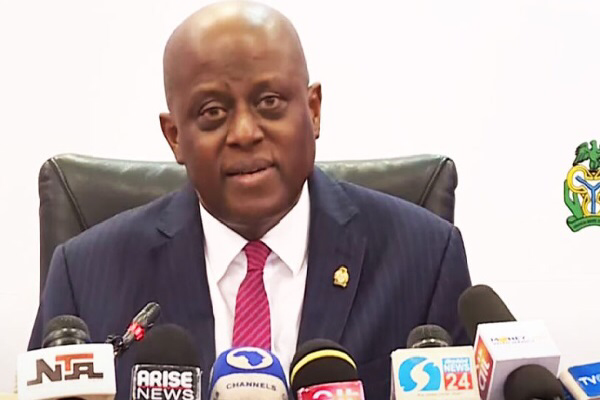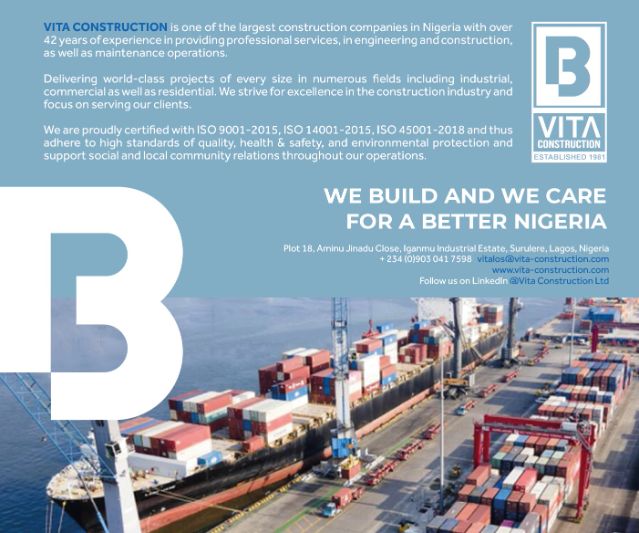CBN Governor Yemi Cardoso has disclosed that law enforcement agencies are investigating foreign exchange forwards worth an estimated $2.4 billion. Cardoso stated that these transactions are considered ineligible for payment. The disclosure came after the Monetary Policy Committee (MPC) meeting held in Abuja on Tuesday, March 26.
According to Cardoso, the illegal foreign exchange forwards were made by some banks and other financial institutions, and are currently under investigation. The CBN governor noted that the investigation is being carried out in order to uncover the full extent of the fraudulent activity and bring those responsible.
In a detailed forensic audit of these transactions, the CBN uncovered multiple discrepancies that render them invalid. The investigation was prompted by the CBN’s discovery of irregularities in certain FX transactions that had been settled. The forensic analysis, conducted by Deloitte management consultants over several months, found that the transactions in question were not in accordance with CBN regulations. This casts doubt on the legitimacy of these transactions and raises concerns about potential fraud.
It is clear from the CBN’s findings that there are serious issues with the way that these FX transactions were handled.
During the forensic audit, the CBN determined that several transactions failed to meet validation criteria. There were instances where allocations worth millions of dollars were made without corresponding requests, and some transactions were missing proper documentation or were found to be illegal. In the words of Cardoso, “In the course of the forensic audit, we determined that a number of these transactions did not qualify. Some cases involved requests that were never made, and allocations of millions of dollars were made without proper justification. Furthermore, some transactions were not properly documented, and some were found to be outright illegal.”
In addition to the lack of proper documentation, Cardoso noted that many of the transactions in question were “outright illegal.” He stated that “law enforcement agencies are now looking into those transactions,” as they “are not valid to be paid.” The CBN’s decision not to validate these transactions has significant implications for the companies and individuals involved, and may lead to further investigations and potential criminal charges.
These revelations raise serious concerns about the financial sector’s adherence to regulations and ethical standards. The integrity of the system is called into question by such flagrant violations of the law, and the consequences could be severe.
To address any concerns among stakeholders about potential backlogs, Cardoso assured that the foreign exchange market remains open and transparent, and that any outstanding contractual obligations can be addressed. However, he emphasized that the CBN has already verified and settled any recognized backlogs of forward transactions.
Cardoso reiterated the CBN’s commitment to maintaining price stability and fighting inflation. He stressed the importance of adhering to the central bank’s core mandate, and restoring the purchasing power of the average Nigerian. The CBN remains committed to ensuring that its policies benefit the economy and the people of Nigeria.
In light of the situation, the Monetary Policy Committee (MPC) announced a significant increase in the benchmark interest rate to 24.75%, as part of measures to curb inflation. In addition, the MPC adjusted the reserve requirements for banks and increased the Cash Reserve Ratio (CRR) of Merchant Banks from 10% to 14%. These measures were taken to tighten control over the money supply and stabilize prices. The MPC also decided to retain the Liquidity Ratio at 30%.
These decisions were made in the context of rising inflation, driven by a range of factors including global economic conditions, rising energy costs, and domestic supply constraints.
In addition to the steps taken to control inflation, the CBN anticipates that the implementation of the monetary policy will gradually lead to a decline in inflation rates by May. The committee stressed the need for a balanced approach that fosters economic growth while maintaining price stability. It called for greater focus on agricultural policies to enhance food supply, as well as broader fiscal consolidation to improve tax collection.
Regarding the forex market, Cardoso expressed concern about the lack of competition and transparency, calling for the removal of “oligopolistic restrictions on dairy imports” to allow for an open and competitive foreign exchange market.
Regarding cryptocurrencies, Cardoso clarified that the CBN has no direct oversight of such assets, as they fall under the purview of the Securities and Exchange Commission (SEC). He emphasized the CBN’s role in collaborating with relevant authorities to ensure a level playing field for all participants in the financial system, and stated that the CBN is working to ensure that its policies support financial stability and promote economic growth.
The governor also addressed the controversy surrounding Binance, a leading cryptocurrency exchange, noting that the CBN is closely monitoring the situation and remains committed to ensuring transparency and fairness in the financial system. He also stressed the need for financial institutions to ensure robust compliance with all regulations and avoid any conflicts of interest.
Cardoso further emphasized the CBN’s focus on protecting the interests of financial consumers, highlighting the Bank’s efforts to strengthen financial literacy and enhance access to financial services. He stated that the CBN is committed to creating a financial system that serves the needs of all Nigerians.
In conclusion, Cardoso stressed the importance of collaboration and coordination between the CBN, financial institutions, and other stakeholders to ensure the stability and growth of the Nigerian economy.
Cardoso also highlighted the need for increased transparency in the financial system, particularly in the area of remittances. He noted that the CBN has been working to increase transparency in the remittance market, and has taken steps to lower remittance fees and ensure that customers receive the full value of their funds.
In addition, Cardoso emphasized the importance of innovation and technology in the financial sector, and highlighted the CBN’s efforts to promote the use of technology in banking and payment systems. He noted that the CBN is working to create a robust infrastructure to support the growth of digital banking and mobile money.
In closing Cardoso reiterated the CBN’s commitment to ensuring that the financial system serves the interests of all Nigerians, and stated that the Bank will continue to work with all stakeholders to create a system that is secure, reliable, and accessible to all. He thanked the press for their attention and ended the briefing.
Overall, the CBN governor’s statements emphasized the Bank’s focus on promoting financial stability, innovation, and transparency, while protecting the interests of consumers and financial institutions. The CBN appears to be taking a proactive approach to addressing the challenges and opportunities facing the financial system.









